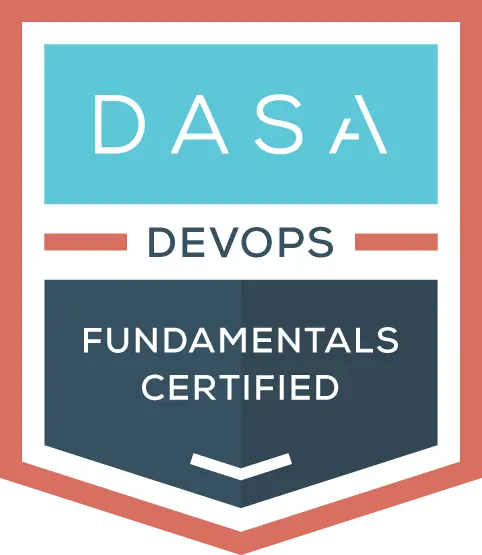Embracing DevOps as an Evolutionary Journey
DevOps represents a fundamental shift in how software development and IT operations collaborate, focusing on enhancing efficiency, reliability, and agility. This article delves into the debate of evolutionary versus revolutionary approaches to DevOps, advocating for gradual, sustainable change over abrupt, disruptive overhauls. Understanding this distinction is crucial for leaders, technical professionals, and organizations aiming to navigate their DevOps transformation successfully.
Evolution vs. Revolution: Understanding the Approaches
Revolutionary Approach
A revolutionary approach to DevOps involves rapid, sweeping changes that overhaul existing systems and practices. While it promises radical transformation, it is often driven by dissatisfaction or crisis, resulting in high risk, instability, and resistance from the workforce. Such an approach tends to focus on technology upgrades without adequately addressing cultural shifts, leading to fragmented and short-lived improvements.
Evolutionary Approach
Conversely, an evolutionary approach advocates for gradual, incremental changes that emphasize continuous learning, adaptation, and improvement. This method is more stable, lower in risk, and fosters a collaborative culture. By building on existing systems and enhancing them incrementally, organizations can achieve sustainable change and long-term success.
Key Differences in Context
- Stakeholder Involvement: Revolutionary changes often lack buy-in from key stakeholders, whereas evolutionary changes emphasize collaboration and collective ownership.
- Focus Areas: Revolutionary approaches prioritize technological upgrades, while evolutionary methods integrate cultural, process, and technological improvements.
- Risk Management: Evolutionary changes manage risks better by implementing small, manageable changes that gradually build momentum and stability.
Implementing an Evolutionary Approach to DevOps
To successfully implement DevOps, start with a small pilot project or team to address specific pain points or processes. This allows for manageable changes and demonstrates the value of DevOps, using the pilot as both a learning experience and proof of concept.
Fostering collaboration and breaking down silos between development, operations, and other teams is essential. Open communication, knowledge sharing, and cross-functional cooperation create a culture of continuous improvement, which is critical for sustainable change.
Prioritize automation by identifying repetitive manual tasks and starting with simple tools. Gradually expand automation across the entire software development lifecycle, increasing efficiency and reducing errors. Embrace Infrastructure as Code (IaC) by using tools like Terraform or CloudFormation to ensure consistency and accelerate deployment processes. You can implement Continuous Integration and Continuous Deployment (CI/CD) to automate build, test, and deployment processes, enabling faster, more reliable releases. Monitoring and measuring success through key performance indicators (KPIs) and data analysis help track progress and inform future optimizations.
Finally, cultivate a learning culture by investing in training and encouraging experimentation. A blameless environment where teams learn from failures promotes innovation and enhances employee satisfaction.
Proven Strategies for Successful DevOps Evolution
Identifying and supporting champions within the organization is crucial to driving DevOps adoption. These individuals, who already believe in the mission and have established trust with their colleagues, can advocate for DevOps practices and help guide the transition from within. Their influence and credibility make them powerful agents of change.
Building tools and platforms that allow engineers to work independently is another key strategy. By reducing bottlenecks and empowering teams to perform tasks autonomously, organizations can boost efficiency and overall job satisfaction. This approach streamlines workflows and removes unnecessary dependencies.
Setting realistic expectations and consistently exceeding them helps build trust with stakeholders. This “under-promise and over-deliver” strategy fosters credibility and creates a supportive environment for ongoing DevOps initiatives, ensuring continued support and investment in the process.
Listening actively and asking thoughtful questions is essential to understanding current systems and processes. Engaging deeply with teams helps uncover insights and build trust, ensuring that proposed changes are well-informed and collaboratively developed, leading to smoother implementation.
Lastly, trust and relationships are at the heart of any successful DevOps transformation. Regularly engaging with key players, understanding their challenges and achievements, and involving them in decision-making fosters strong relationships. Trust built through open communication and collaboration is the foundation for sustained DevOps success.
Conclusion
The evolutionary approach to DevOps, characterized by gradual, sustainable change, offers a more stable and effective path to transformation than the revolutionary method. By fostering collaboration, prioritizing automation, and cultivating a culture of continuous improvement, organizations can achieve lasting success in their DevOps journey. Embracing this evolutionary mindset not only enhances software delivery and organizational agility but also builds a resilient, innovative culture capable of thriving.


DASA DevOps Certification Program
DASA DevOps Certification Program equips you with the foundational skills to understand and implement key DevOps principles. You’ll learn how to foster collaboration across teams, streamline workflows, and accelerate delivery cycles—all while ensuring your organization is prepared for long-term digital transformation.
